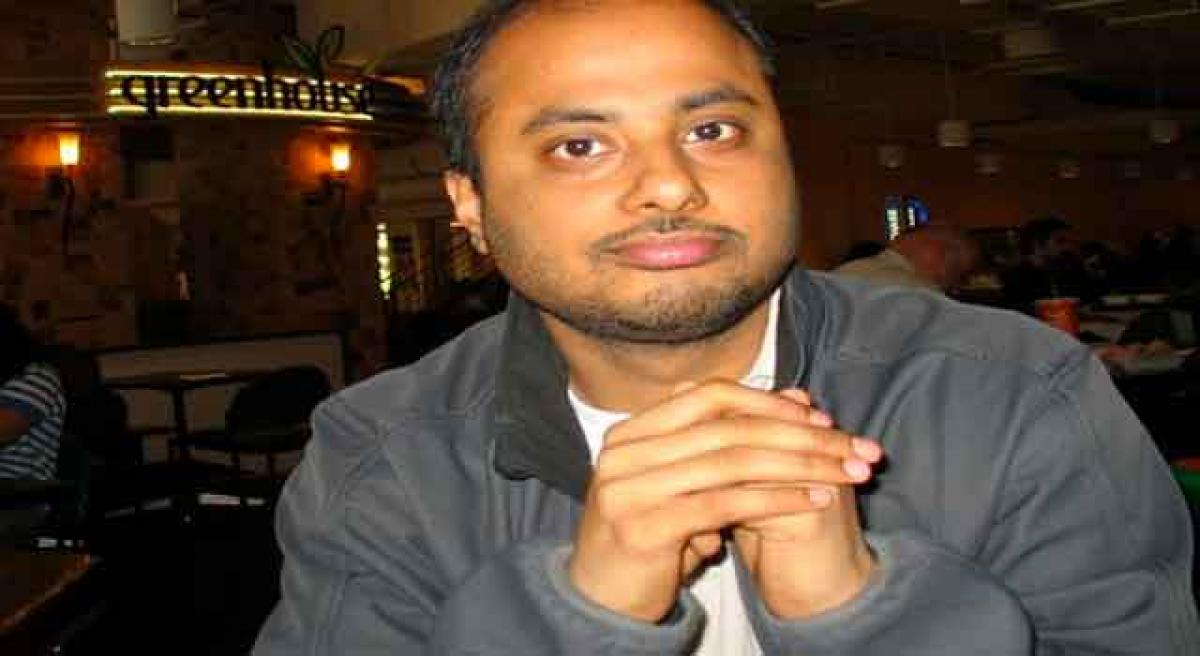Live
- Chanchalguda Jail Officials Say They Haven't Received Bail Papers Yet, Allu Arjun May Stay in Jail Tonight
- BJP leaders present evidence of illegal voters in Delhi, urge EC for swift action
- Exams will not be cancelled: BPSC chairman
- Nagesh Trophy: Karnataka, T.N win in Group A; Bihar, Rajasthan triumph in Group B
- YS Jagan condemns the arrest of Allu Arjun
- Economic and digital corridors to maritime connectivity, India and Italy building vision for future, says Italian Ambassador
- SMAT 2024: Patidar's heroics guide Madhya Pradesh to final after 13 years
- CCPA issues notices to 17 entities for violating direct selling rules
- Mamata expresses satisfaction over speedy conviction in minor girl rape-murder case
- Transparent Survey Process for Indiramma Housing Scheme Directed by District Collector
Just In

The chilling story of an Indian-American Mainak Sarkar killing his wife in Minnesota before driving over 3,000 km to the University of California-Los Angeles (UCLA) where he shot dead a professor and then killed himself should not just end in shock and horror. It should lead to a brainstorming on how we educate and how we prepare the new generation to face the adversities in life. The motive for t
The chilling story of an Indian-American Mainak Sarkar killing his wife in Minnesota before driving over 3,000 km to the University of California-Los Angeles (UCLA) where he shot dead a professor and then killed himself should not just end in shock and horror. It should lead to a brainstorming on how we educate and how we prepare the new generation to face the adversities in life. The motive for the murder seems to be a dispute over intellectual property.
Sarkar wrote in his blog post that the professor stole all his code and gave it to another student. Before enrolling at UCLA, Sarkar earned a Master's degree at Stanford University following graduation in aerospace engineering at the Indian Institute of Technology in Kharagpur. The amazing academic background shows how studious and meritorious he was. Still he committed a blunder in the spur of the moment.
It’s unbecoming of such a brilliant researcher, though the concern he expressed may be genuine. His school teachers in India say that Sarkar was boisterous. This is not an isolated incident. We hear many stories of intelligent people committing suicide or indulging in crime as they fail to face the situation upfront.
The pathetic incident should make us explore how we impart life skills. Life teaches more than any other exposure. Someone who cannot manage one’s life tends to falter even in profession. Finance, personal relations, success and failure, emotions etc., that define one’s life have immense management lessons to offer.
These principles of management derived from life situations teach more than any other text book or an industry internship. Life management should therefore form part of the curriculum not just in a management school but at every level.
It is much more essential at a time when life experience for the modern generation is increasingly becoming virtual. Institutions of family and community are weakening due to the inevitable onslaught of modernity, demanding greater inculcation of life management skills.
Parental counseling is often confined to career progression than facing the oddities of life. Grandmother’s lap is an endangered species. Siblings are distanced by time, space and speed of life. In a world where ends determine means, morality and integrity become a casualty.
We are producing more and more efficient people who race with machines to remain ahead of change. We redefine competition to embrace the fascinating material world. Even religious discourse is marked by competitive populism and brazen commercialism thus failing to provide solace to humans.
Albert Einstein rightly observed that the twentieth century is marked by perfection of means and confusion of ends. The 21st century has further accentuated this dichotomy of life. The story of this brilliant Sarkar is an apt anecdote to reaffirm the wisdom of the greatest scientist.
We are always reactive rather than proactive. As the climate change spells the environmental catastrophe, we wake up to teach environment in schools. As the nation grapples with multiple disasters, we teach disaster management. Yet this is only ritualistic. Excursions enthrall rather than educate.
If we still fail to change, humanitarian crisis is fast engulfing. We need to produce scintillating professionals. But the greater need is to create wonderful human beings. Life should not just be successful, but meaningful too. Let the nation prepare the generations towards this end.

© 2024 Hyderabad Media House Limited/The Hans India. All rights reserved. Powered by hocalwire.com







